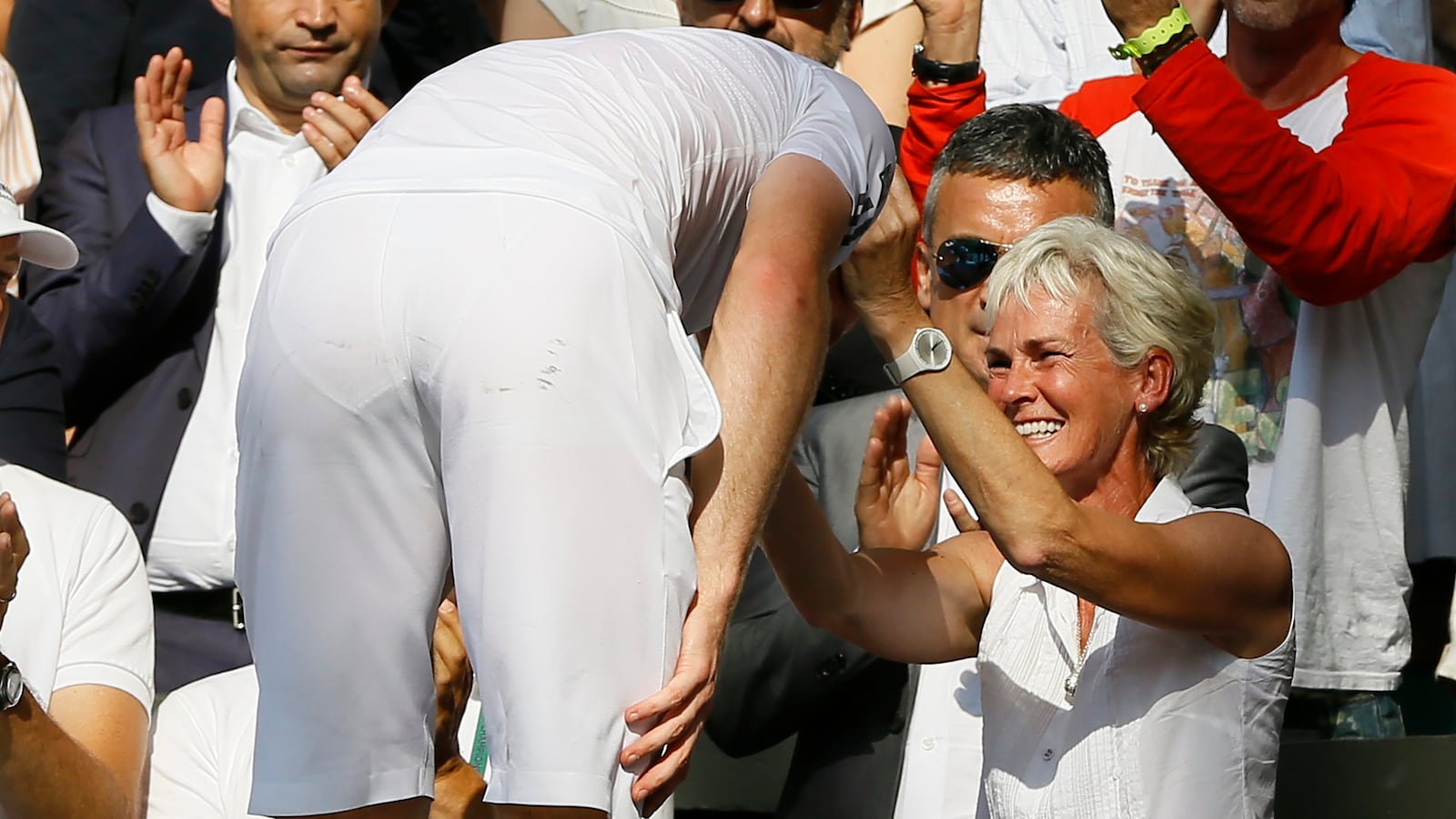A small Scottish town, once known only for its darkest moment, dissolved into celebration when native son Andy Murray was crowned Wimbledon champion, 17 years after surviving the worst school shooting in British history.

Murray was 8 years old when he crouched beneath a desk and heard the 18 fatal shots that transformed his obscure hometown into the notorious site of a massacre. On Monday, the boy from Dunblane was welcomed to Downing Street by an exuberant prime minister who declared him worthy of a knighthood.
Murray has secured a second place in the history books by becoming the first British man in 77 years to win at the All England Lawn Tennis and Croquet Club.
His mother celebrated by posting an old photograph of her two sons on Twitter. In the picture, taken before the school shooting, both boys wore Wimbledon T-shirts and clutched small rackets by their shortened handles. “You’ve come a long way, babies,” wrote Judy Murray.
Her youngest son, who beat the world No. 1 Novak Djokovic on Sunday, spoke publicly about the massacre for the first time last month. “You have no idea how tough something like that is,” he told the BBC.
On March 13, 1996, a middle-aged man opened fire in the school’s gymnasium, killing 16 children aged 5 or 6. The victims were in the year below those who died in the Sandy Hook Elementary School shooting.
“Andy’s class were on their way to the gym, his class were the next ones in,” his mother told the BBC. “I was one of hundreds of mums that were queuing up at the school gates waiting to find out what had happened, not knowing if your children were alive or not.”
This week, an impromptu parade gamboled through the town, which is home to less than 9,000 people. Residents had watched Wimbledon in a community center built with money donated in the wake of the shooting.
The butcher on the high street was selling “Wimble-don!” sausages while signs reading “The Boy Done Good” and “He Did It for Dunblane” filled the windows.
“It is just nice being able to do something the town is proud of,” Murray told the BBC.
That sense of pride was not confined to the city limits. Amid longstanding tensions between Scotland and the rest of Britain, the race to claim Murray’s national loyalty has been fraught.
Alex Salmond, Scotland’s first minister, tried to claim Murray as a latter-day Braveheart, unfurling the blue-and-white Scottish “Saltire” flag in Wimbledon’s royal box as Murray’s celebrations began.
The leader of the Scottish National Party, Salmond was accused of politicizing the victory a year before Scotland’s referendum on independence. A spokesman denied any nefarious motives. “One extra Saltire among a sea of flags seems like a fair way to celebrate,” he said.
Prime Minister David Cameron responded by saying the victory should be marked in truly British style: with a knighthood. The honor would mean the 26-year-old should be addressed as Sir Andy Murray. “Honors are decided independently but, frankly, I can’t think of anyone who deserves one more,” said Cameron.
As celebrations broke out all over Britain, The Guardian suggested the animosity should be curtailed centuries after the first skirmishes along the Scottish border. “Andy Murray: Scottish, British. Who cares? Today he belongs to us all,” read a headline in the paper.
In the words of his father, William Murray: “[That’s] not bad for a gangly boy from Dunblane.”






